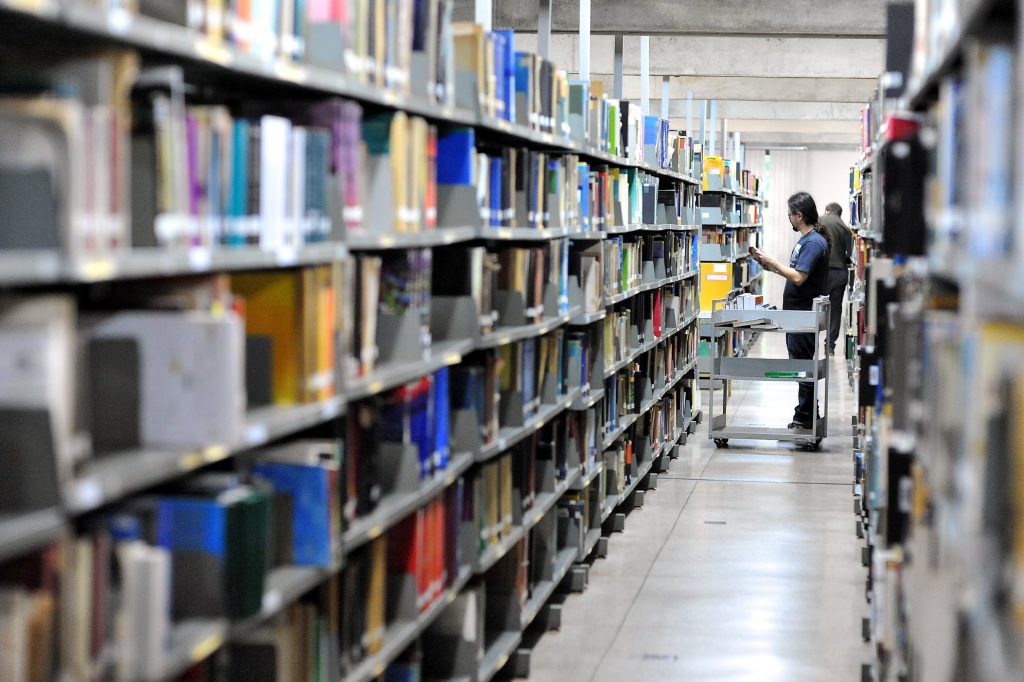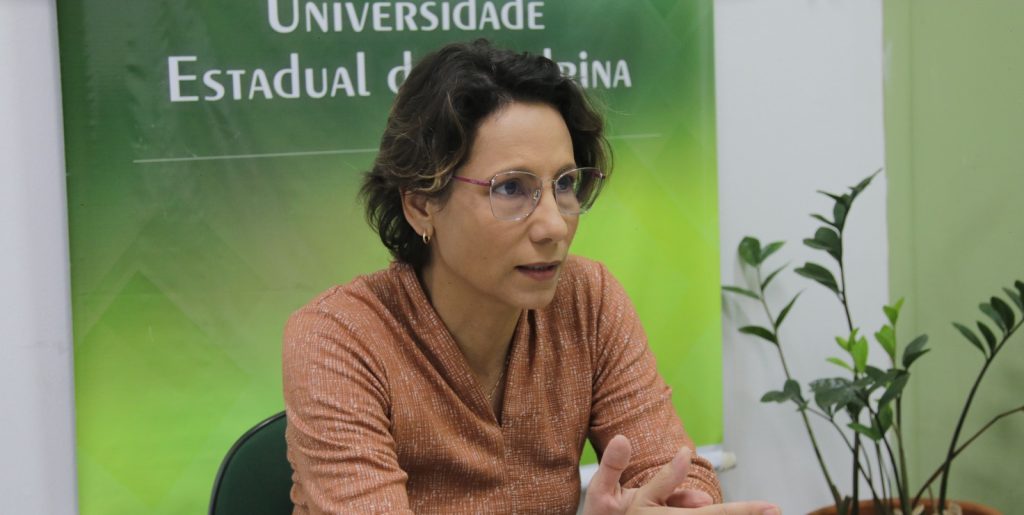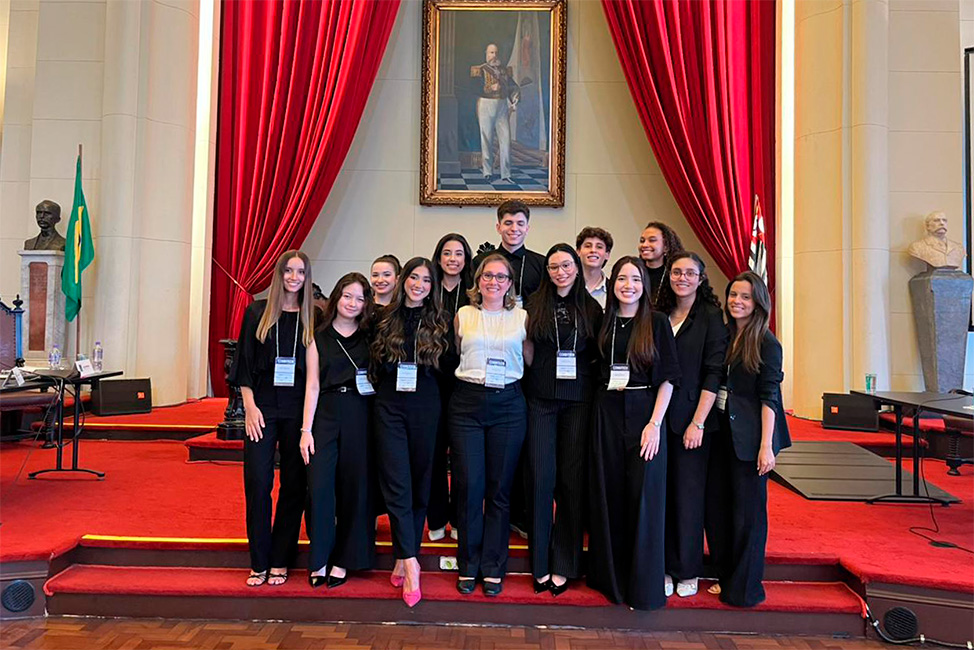[EN] Project benefits settlement by supporting the production of fruit pulp
[EN] Project benefits settlement by supporting the production of fruit pulp
Reportagem originalmente publicada em português na edição nº1417 do Jornal Notícia. Traduzida pela equipe do Paraná Fala Inglês.The Extension Project developed by the Departments of Zootechnic and Agronomy has helped to improve the activity and quality of life of small farmers from the Iraci Salete Settlement, in Alvorada do Sul, in the northern region of Paraná. There are a total of 60 families of rural producers, spread over a 12-hectare area where they produce fruits, vegetables, and raise animals.
The first interventions by researchers and extension workers from UEL (Universidade Estadual de Londrina) were carried out in 2007 when the farmers began producing herbs for tea. In recent years, the project was expanded to include the organization of fruit pulp production, providing the first outlines for the structuring of an agro-industry to process passion fruit, mango, pitanga, and acerola.
According to Professor Ana Maria Bridi, from the Department of Animal Science and coordinator of the extension project “Organization of Collective Fruit Pulp Production in Rural Settlement,” the farmers currently have an industrial kitchen in the course of being installed for the production of pulp. The site should also be used in the future to produce packaged cassava, ready for consumption, as well as sanitized vegetables.
Another proposal is to change the vegetable production model to organic. The goal is to adapt production for school meals, since from 2030 all the food served in Paraná’s public schools will have to be organic. Efforts need to start now so that the settlers can be integrated into this project. Producers who do not migrate to the organic model will be excluded from the school meals program.
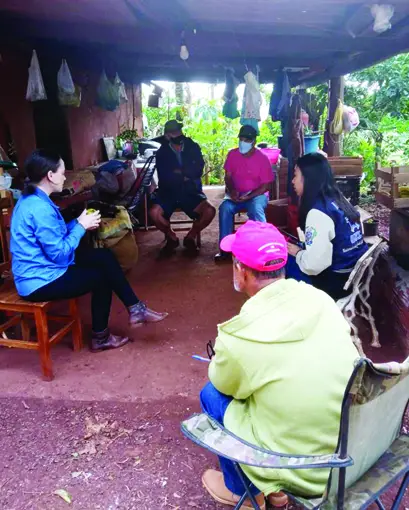
According to the project coordinator, the idea of producing fruit pulp takes into account the settlement ‘s good production and the accompanying marketing difficulties.Farmers have a large supply during the harvest season, when the price of fruit is consequently lower. The production of pulp is therefore recommended in order to take advantage of and stock up on excess fruit, a profitable agro-industrial activity with a quick return and a relatively small investment.
The industrial kitchen has equipment such as a fruit pulping machine, a fruit ripening and storage chamber, stainless steel tanks, a cassava peeling machine and other equipment acquired in recent years through investments made by the extension workers.
In 2015, UEL (Universidade Estadual de Londrina) was awarded the Santander Universities Prize, competing against over 23,000 initiatives developed in Higher Education Institutions across the country. At the time, the project was called “Technical Assistance in Poultry Production and Health in Rural Settlements with a view to Sustainable Production.” The award funds were entirely invested in equipment and infrastructure, ensuring the improvement of working conditions for farmers.
Enhancement
The extension project not only enhances the agricultural production of the settlers but also creates opportunities for students and professors to put their academic knowledge into practice and offers new experience and learning. Professor Bridi explains that students participating in the PET Zootechnics Group also contribute to improving the level of information of the Iraci Salete settlers. he explains that Zootechnics is closely linked to plant production, since the course curriculum includes subjects such as climatology, soil analysis and conservation and weed control, for example. All this information is valuable for improving the work of small farmers.
She explains that with the requirement of integrating extension activities into the curriculum, which is currently being implemented in UEL courses, all undergraduate students will be required to take part in projects, share experiences, and put their academic learning into practice. For students in the Zootechnics course, the requirement will be 400 hours of participation in extension projects.
The professor notes that the practice of extension is linked to the social commitment of the University, which needs to be concerned about its surroundings and interact with society by offering solutions. “It is different from technical assistance; it is essential to understand that this community is also going to teach,” she says. She adds that students have to understand social and economic issues and know how to listen to the needs of society. In the case of the project that serves the Iraci Salete settlement, in addition to the Zootechnics course, professors and students from the Economics, Pharmacy, Agronomy, and Food Science and Technology Departments are also involved.
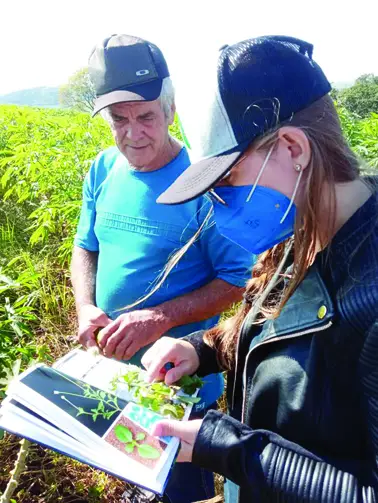
UEL also offers an alternative and infrastructure for the settlers to market their produce. Twice a month, the farmers participate in the “Feira da Cidadania” (Citizenship Fair) held by the Prorectorate for Outreach and Extension (PROEX) on the University Campus. The aim is to provide venues to sell their produce and bring the university community closer to the producers and other social entrepreneurs who attend the fair. It is an addition to the actions carried out at Iraci Salete, aimed at improving the quality of life of families.
Reportagem traduzida por Maurício Brancalhão, revisada por Raquel Prette e supervisionada por Fernanda Machado Brener. Equipe Paraná Fala Idiomas – Inglês.
Matéria originalmente publicada em português na edição nº1417 do Jornal Notícia: Projeto beneficia assentamento na produção de polpa de frutas.

